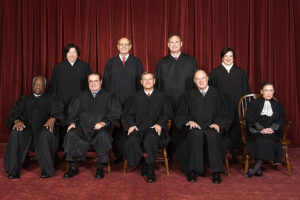In the preface to the 1960 edition of Moral Man and Immoral Society (1932), Reinhold Niebuhr wrote:
The central thesis was, and is, that the Liberal Movement, both religious and secular, seemed to be unconscious of the basic difference between the morality of individuals, and the collectives, whether races, classes, or nations.
Now, in 2016, when ISIS attempts to justify genocide and impose Sharia law on other groups, there is increased political party intolerance and self-interest in US political discourse, and the LGBT community attempting to impose its bathroom morality on all other people, it is clearer than ever that people still seem to behave better as individuals than in groups, and that the liberal West has failed to make progress in addressing the problems unethical and uncivil behavior of groups.

The 1960 version of Reinhold Niebuhr’s Moral Man and Immoral Society
One reason for this failure is that long ago standards for personal behavior and interpersonal behavior developed. These standards evolved over centuries and were encapsulated in the Ten Commandments in the Bible, however they did not originate there. The Code of Hammurabi that preceded the Bible by perhaps one thousand years contains most of these standards for individuals. It is important to understand that these standards are not arbitrary, nor were they generated by consensus. They evolved in order to allow human societies to function, and like Darwin’s theses regarding human adaptation, civilizations began to flourish when individuals practiced these commandments.
However, from Ancient times through the Middle Ages, people largely lived in groups and were separated from other groups. Tribal elders or town mayors largely dictated the politics, economy, and morality of their community, and such groups tended to have a great deal of autonomy, even if they were part of some larger empire. If an individual didn’t like the standards of their birth group, they were shunned, expelled, or killed. However, while these groups enforced a code of behavior that reflected their own particular history, geographical setting, and leadership, they all followed the spirit of the Ten Commandments. Continue reading →










